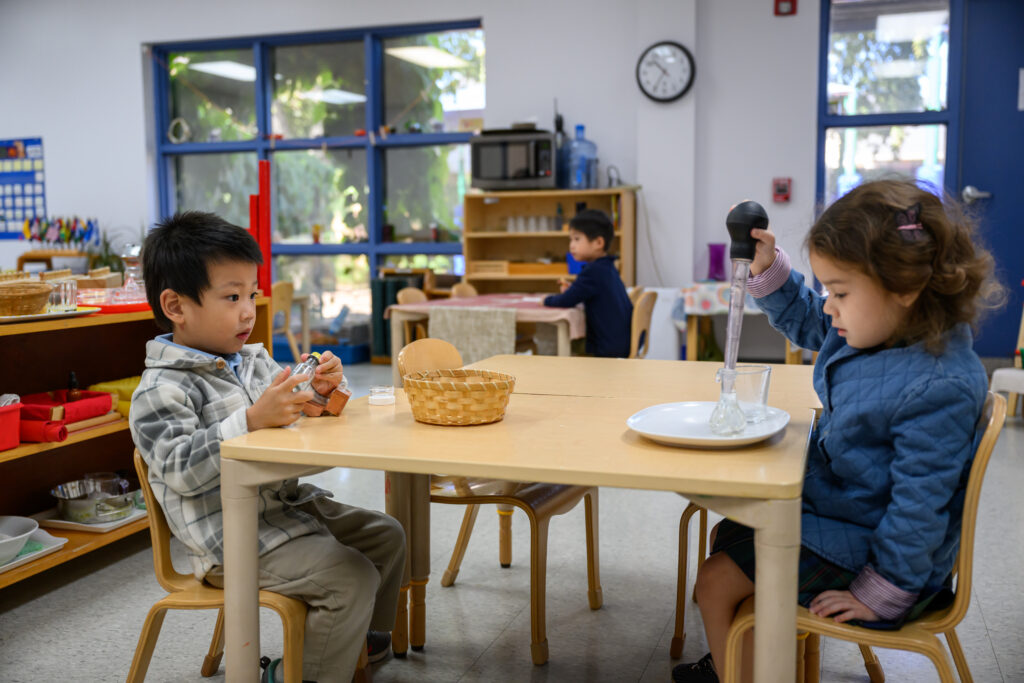Through practical exercises…the children develop a true ‘social feeling,’ for they are working in the environment of the community in which they live, without concerning themselves as to whether it is for their own, or for the common good.
Maria Montessori, The Discovery of the Child, p. 97
When children enter our early years environments, it is often their first opportunity to engage in a social system outside of their home. Montessori believed this was an age when children, moving into the conscious absorbent mind, were able to interact, regulate, and even learn to negotiate with others. Grace and courtesy lessons introduce these social norms to children and help them understand the importance of respect and responsibility within their new social environment.
As we settle in new children and welcome back returning ones, we often have to go back to the beginning. After a long summer, it sometimes takes time to return to the routine and to set expectations. For true freedom to exist, there must be clear limits—and children often need to be reminded of these limits within the environment. These limits create safety and trust and lay the foundation for respect. Respect is a cornerstone of cosmic education and a guiding force within Montessori philosophy: respect for self, respect for others, and respect for the environment.
Respect for Self
This is the hardest form of respect to observe and to teach, but the most impactful when it comes to children developing their social and emotional skills. Supporting children to have the agency to say no, to understand that it is okay to make mistakes, and to encourage them to be their authentic selves is what makes Montessori so special. This all starts with respect for self, to develop the confidence and independence to contribute to the greater whole.
Respect for Others
The foundation of social cohesion, a cornerstone of cosmic education, lies in understanding that our actions affect others. By recognizing the interconnectedness of all living things, we begin to develop the social awareness necessary to create community and belonging. Allowing children to practice this encourages them to learn to listen, to consider other viewpoints, and to create genuine connections with others.
Respect for the Environment
Respect and responsibility go hand in hand when considering how grace and courtesy unfold within the environment. This is where the essence of casa dei bambini, or “house of the children,” was born. Ownership of a space designed and meant for children requires everyone within it to take responsibility for maintaining the environment. This applies not only to the physical space but also to the spiritual environment, as each person plays a role in ensuring it is healthy and representative of both the children and the adults within it.
Grace and Courtesy and the Guide
Montessori calls us to be role models in our environments—modeling not only our movements but also social and emotional learning. By role modeling, we share our expectations, reflect on our own words and actions, and embrace the responsibility of being a guide. Role modeling should be more than grace and courtesy—it’s about showing up authentically and allowing children to see that it’s okay to do the same. This is what helps create the spiritual environment that nurtures the child and allows the Montessori philosophy to come alive.
Montessori said imitation is a tool for children to better understand the world around them. So, be someone worthy of imitation—not only in our interactions with children but with everyone in our communities. This is the essence of Montessori: creating environments of social cohesion, centered around respect, where everyone thrives.


